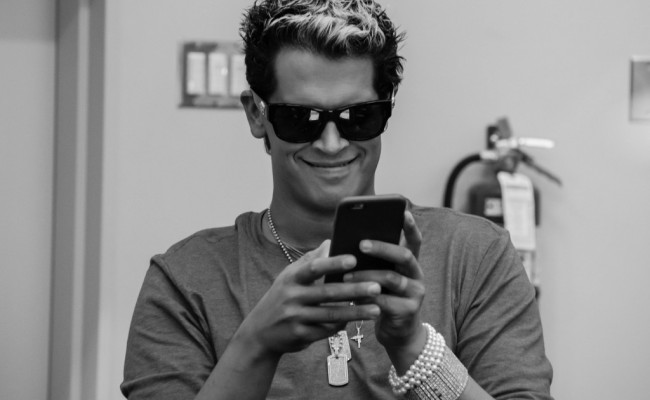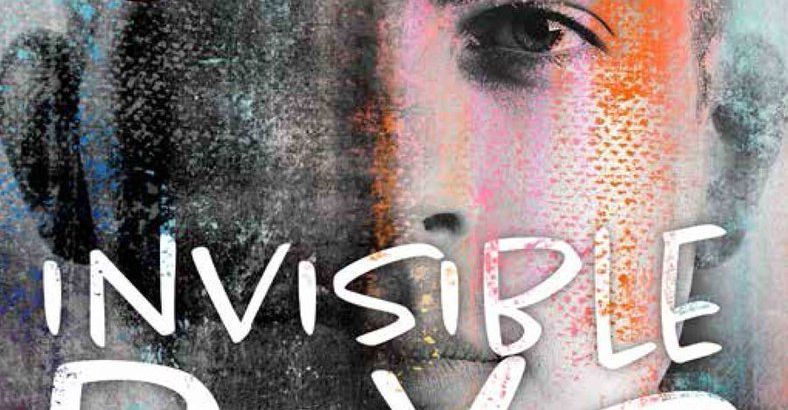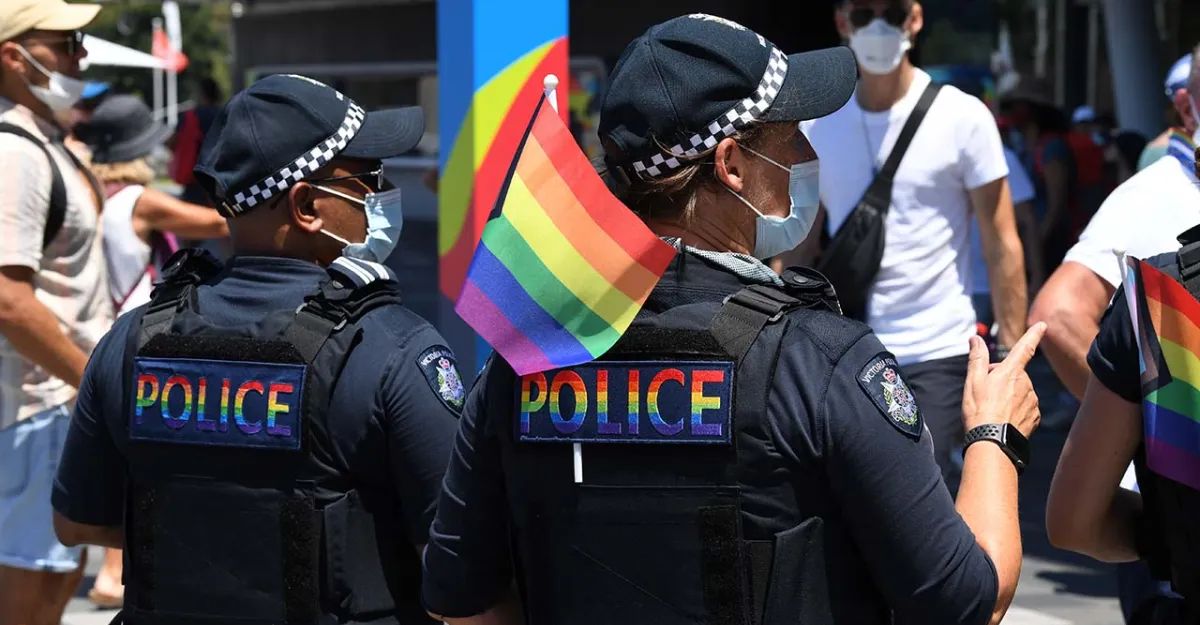The digital equivalent of rivers of ink have already been spilled eulogising Milo Yiannopoulos, so I don’t intend to add to that with this piece. But with the four words, ‘They cancelled my book’, this alt-right Icarus saw his career plunge into the ocean of the internet’s yesterdays and with any luck, the only time we speak Milo’s name in future will be when preceded by the phrase ‘Whatever happened to…?’
For this ‘dangerous faggot’ (his words), nothing but the most ignoble of endings was deserved, and could there be an ending more ignoble than being exiled from the Conservative Community, which he sycophantically courted, over the age-old paranoia of gays wanting to molest your children? Breitbart News, the far-right media platform where Yiannopoulos was until last week tech editor, published a media release that appeared to stand by him, reiterating that ‘Milo Yiannopoulos’s bold voice has sparked much-needed debate on important cultural topics confronting universities, the LGBTQ community, the press, and the tech industry’, but behind the scenes, the pressure on Yiannopoulos to resign came from the site’s staff, who threatened to quit over the scandal.
Yet Yiannopoulos is only one of many high-profile members of the LGBT community who in recent years have thrown their lot in with the dark forces of the right. Caitlin Jenner, lifelong Republican and now a go-to trans spokesperson, got behind Donald Trump in June last year, saying Trump was ‘very much behind the LGBTQ community’. Yiannopoulos was also fond of the president, known for calling Trump ‘Daddy’, and a Facebook page called ‘LGBTrump’ lays out its manifesto for the ‘post-Marriage Equality era’: ‘it is time for the LGBT community to stop viewing politics through the narrow lens of the culture war and start engaging the whole political spectrum’. For his part, in the wake of the Orlando nightclub shooting where a gunman shot and killed forty nine members of the local LGBT community, Papa Trump came out swinging for us gays, when he said ‘The burden is on Hillary Clinton to tell us why we should admit anyone into our country who supports violence of any kind against gay and lesbian Americans’.
But while Trump and the LGBT community might seem to make for strange bedfellows, anyone following the development of the far right in Europe recently would know that these two unlikely partners have been going steady for some time. And nowhere is this tryst more famously amorous than in France.
Two years ago, the winner of gay magazine Têtu’s ‘Mr Gay’ competition, Matthieu Chartraire, proclaimed his support for the far-right National Front (FN). This was met with outrage by the LGBT community and eventually, Têtu severed its ties with Chartraire. Yet in 2015, in the City of Lights, 26 per cent of homosexuals supported the FN as opposed to 16 per cent of heterosexuals. A poll has also found that 38.6 per cent of married gay men supported the FN in regional elections.
And why wouldn’t they when the man credited with renovating the FN – converting it from an outfit of Nazi sympathisers to a modern party that includes gays and women in its higher ranks – is one of their own? Florian Philippot is FN vice president and party leader Marine Le Pen’s closest adviser. Since entering Marine Le Pen’s orbit in 2012 as her presidential campaign director, the party has undergone a process of ‘de-demonisation’, seeming to sever ties with its anti-Semitic, Holocaust-denying past. The pinnacle of this de-demonisation was Marine Le Pen’s expulsion of her own father from the party that he founded.
Philippot has stressed that the party is neither pro- nor anti-gay, but pro-French: ‘We’re a party that doesn’t care about people’s preferences, their sexual practices or whatever… You’re a French citizen foremost’. Le Pen herself similarly proclaimed in a May Day rally: ‘Whether man or woman, heterosexual or homosexual, Christian, Jewish or Muslim, we are foremost French’.
And so here we are: the LGBT community, once marginalised, once anathema to the values of the far right is now told that it’s only within the fold of the far right that we’ll be safe and welcome. Except that rather than the far right shielding us from attack, our rights and our existence are being used to shield groups like the FN from the charge that they’re socially backward. Ditching socially conservative traits like anti-Semitism and homophobia has freed up space for Le Pen and the far right to shift their emphasis towards anti-immigration and the ‘Islamisation of France’. In an era where LGBT people in the West have won many legal rights and have gained visibility, homophobia has lost its utility for the right and indeed alienates a potential layer of support among affluent, middle class LGBT people – like the 38.6 per cent of married gay Frenchmen who supported the FN. And importantly, the climate of Islamophobia allows the notion that Muslims are LGBT people’s main enemy to stick.
But it’s not all rainbows and glitter over at FN HQ. A hardcore, traditionalist faction still exists within the party, headed by Marine Le Pen’s niece, Marion Maréchal-Le Pen, who took part in the protests against the introduction of same-sex marriage in 2013. Guillaume Lazore, a former member of the FN’s youth collective Marianne, resigned publicly last year after being called an ‘LGBT parasite’, a ‘pederastic waste’ and a ‘sodomite’. And only a fortnight ago, Marine Le Pen pledged to repeal same-sex marriage if elected as the country’s president.
Last week, the Trump administration announced it would repeal Obama-era guidelines stating that transgender students have the right to use the bathroom that matches their gender identity. One of the firmest supporters of this repeal was Milo Yiannopoulos, who days before had said: ‘I think that women and girls should be protected from having men [i.e. trans women, who Yiannopoulos deliberately misgenders] who are confused about their sexual identities in their bathrooms’. Yet days later, he himself was the victim of this same prejudiced idea.
Oppression of LGBT people still exists. And for all its renovations, any gestures from the far right towards the community are pragmatic. Beneath its facade of social liberalism, its foundations remain reactionary and rotten on the question of sexual freedom. Rather than seeking alliances with the kinds of political forces who would see other groups in society oppressed and marginalised, we should learn from the LGBT activists who went to the inspiring airport protests against Trump’s immigration ban, with placards reading ‘Queers for Muslims’.
Or the UK-based group Lesbians and Gays Support the Migrants, a deliberate nod to the group that formed in the eighties, Lesbians and Gays Support the Miners, who collected donations and provided practical solidarity to the striking coal miners under Thatcher.
The group continues to collect donations and also provide practical solidarity for refugees in Calais and Dunkirk but they are also involved in protests and demonstrations, for example protesting outside the Danish embassy when that country announced a policy to confiscate valuables from those entering Denmark seeking asylum.
A Lesbians and Gays Support the Migrants activist Ida-Sofie Picard says:
As queer people, we know what it is like to be labelled illegal. We have experience of being targets for the police and media, and we know what it’s like to be scapegoated and turned into objects of hate based on who we are. We think it’s crucial to use the experiences of our community to find commonality with those targeted most harshly through state oppression now.
In that spirit, in Australia a National Pride March is being organised for 11 June, to coincide with the National Pride March on Washington, called to protest Trump and his brand of politics explicitly. Our friends are those who to stand up to oppression in all its forms, whether homophobia, transphobia or Islamophobia – not Le Pen or Trump, who will never be our allies.






